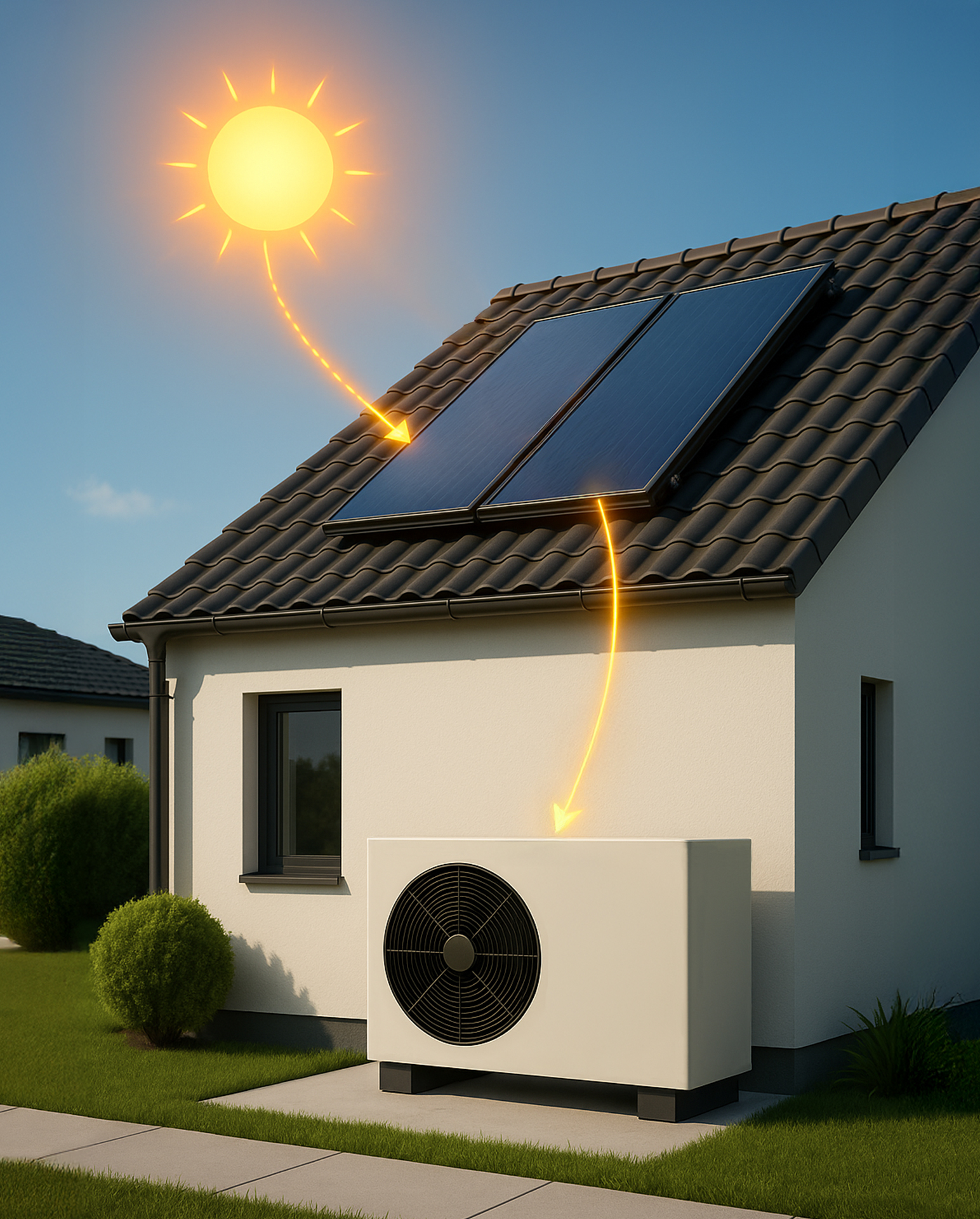As global demand for sustainable heating and cooling solutions intensifies, heat pumps have emerged as a cornerstone of energy-efficient technology. These devices, which transfer heat using minimal electricity, are already highly efficient. However, the integration of artificial intelligence (AI) is poised to elevate their performance to unprecedented levels, promising smarter, greener, and more cost-effective home energy management. This article explores how AI is transforming heat pumps, with a brief look at how Zealux, a leading heat pump manufacturer, envisions contributing to this exciting frontier.
The Basics of Heat Pumps
Heat pumps operate by moving heat from one environment to another—extracting warmth from outdoor air, ground, or water to heat homes in winter, or expelling indoor heat to cool spaces in summer. Unlike traditional furnaces that burn fuel, heat pumps use electricity to drive a refrigeration cycle, making them significantly more energy-efficient. Modern air-source heat pumps, for instance, can deliver up to three times more heat energy than the electrical energy they consume. Yet, their efficiency can be limited by factors like fluctuating weather, user habits, or suboptimal system settings.
The Role of AI in Heat Pump Optimization
AI introduces a paradigm shift by transforming heat pumps from reactive devices into proactive, intelligent systems. By leveraging machine learning, predictive analytics, and real-time data, AI enables heat pumps to adapt dynamically to their environment and user needs. Here’s how AI is revolutionizing heat pump technology:
1. Predictive Analytics for Energy Savings
AI algorithms analyze vast datasets, including weather forecasts, historical energy usage, and occupant behavior, to anticipate heating or cooling demands. For example, an AI-powered heat pump could detect an incoming cold front and adjust its operation overnight to maintain comfort while minimizing energy use. Studies, such as those from Fraunhofer ISE, suggest that AI-driven control can achieve up to 20% energy savings without compromising comfort.
2. Real-Time Optimization
Traditional heat pumps rely on static settings or simple thermostats, which may not account for real-time variables like humidity or occupancy. AI-equipped systems use sensors to monitor indoor and outdoor conditions, adjusting compressor speeds, fan rates, and refrigerant flow instantly. South Korean researchers at Pusan National University developed an AI-based control logic that optimizes secondary refrigerant flow, improving efficiency without altering core components.
3. Fault Detection and Maintenance
AI enhances system reliability by identifying potential issues before they escalate. Machine learning models can detect anomalies in performance data, such as unusual vibrations or pressure drops, signaling the need for maintenance. This predictive maintenance reduces downtime and extends equipment lifespan, as demonstrated by ongoing research at MIT and UC Berkeley.
4. Smart Grid Integration
AI-powered heat pumps can communicate with smart grids, adjusting operation based on electricity prices or grid demand. During off-peak hours, the system might pre-heat a home to reduce costs, contributing to grid stability and supporting renewable energy integration. This capability aligns with the vision of smart cities, where energy systems work in harmony to minimize waste.

The Broader Impact
The integration of AI into heat pumps has far-reaching implications. By reducing energy consumption, these systems lower household utility bills and decrease reliance on fossil fuels, contributing to global carbon reduction goals. In Europe, where 45% of buildings are connected to district heating networks, AI-enabled heat pumps could transform data centers’ waste heat into a resource for urban heating, achieving up to 40% energy recovery. Additionally, quieter operation—enabled by AI-optimized fan and compressor controls—makes these systems ideal for urban environments, addressing noise concerns highlighted in recent innovations.
Challenges and Future Prospects
Despite their promise, AI-powered heat pumps face challenges. Developing robust algorithms that adapt to diverse building types and climates requires significant investment. Scalability is another hurdle, as low-cost sensors and reliable data are essential for widespread adoption. Moreover, consumer trust in AI-driven systems hinges on transparent, secure operation. However, advancements in 5G, IoT, and declining hardware costs are accelerating progress. Researchers estimate that AI-optimized heat pumps could become mainstream within five years, building on prototypes like those using micro-turbocompressors, which reduce power use by 20-25%.
Zealux’s Vision for AI-Powered Heat Pumps
Zealux, a pioneer in heat pump innovation, is actively exploring the potential of AI to enhance its INVERBOOST heat pump technology. Known for its energy-efficient air-source and pool heat pumps, Zealux envisions integrating AI to create smarter, more adaptive systems. By incorporating predictive algorithms and IoT connectivity, Zealux aims to develop heat pumps that optimize energy use in real-time, seamlessly integrate with smart home ecosystems, and offer users intuitive control via mobile apps. This aligns with Zealux’s “365 Days Green Home” initiative, which emphasizes sustainable living through cutting-edge technology. While specific details of Zealux’s AI developments remain under wraps, their commitment to showcasing advancements at events like MCE 2026 signals a bold step toward redefining home comfort.
Conclusion
AI-powered heat pumps represent a leap toward a more sustainable and intelligent energy future. By harnessing data and automation, these systems promise significant energy savings, enhanced comfort, and reduced environmental impact. As challenges are addressed and technology matures, AI will likely become a standard feature in heat pumps, transforming how we heat and cool our homes. Zealux’s forward-thinking approach positions it as a key player in this revolution, ready to deliver innovative solutions that align with the global push for sustainability. As we move toward a greener tomorrow, AI-powered heat pumps will undoubtedly play a pivotal role in shaping a more efficient and eco-friendly world.


